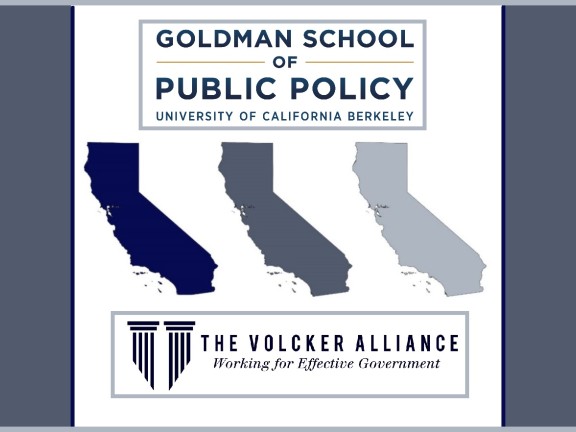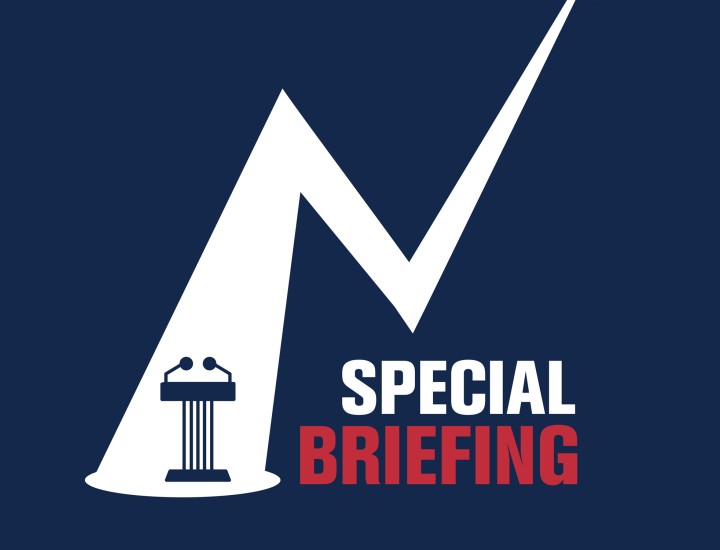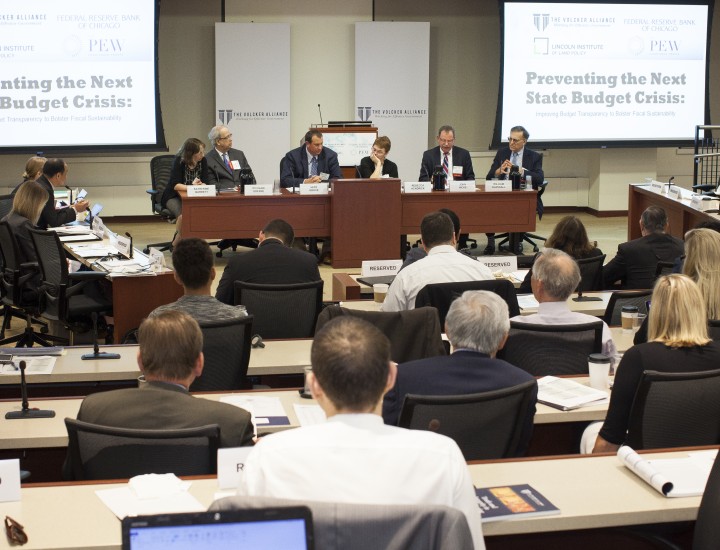Citing Critical Time for California, Goldman School of Public Policy and the Volcker Alliance to Host Conference on State’s Fiscal Outlook

The Goldman School of Public Policy at the University of California, Berkeley and the Volcker Alliance will host a half-day discussion in Sacramento on Wednesday, February 21, featuring three panels on California’s budgeting and transparency practices, the state’s unique fiscal landscape, and the fiscal challenges it will face this year and in years to come.
The event will be open to the public and held at the Capitol Event Center for an audience of public finance experts and practitioners, municipal bond market and legislative analysts, and public policy students, among others. The event can also be viewed remotely via livestream. William Glasgall, Senior Vice President and Director of State and Local Initiatives for the Volcker Alliance, will present with Sarah Swanbeck, Executive Director, Berkeley Institute for the Future of Young Americans, on the fiscal practices and challenges facing Western states, including California.
Their analysis will feature a 2017 Volcker Alliance report Truth and Integrity in State Budgeting: What is the Reality? that assesses the quality of all fifty states’ budgeting practices. California received high marks from the Volcker Alliance on many of its budgetary practices, but in 2017 earned a D-minus—the lowest possible score—in legacy costs, covering provisions for public workers’ retirement security. The state’s far lower marks in that area resulted partly from its struggle to cover $174 billion in unfunded pension liabilities—the highest amount of any state. The Volcker Alliance’s report—and accompanying budget report cards for each state—is the product of a multi-year study conducted in partnership with more than fifty professors and graduate students in public finance and budgeting at eleven US schools of public administration or policy, including Ms. Swanbeck and researchers at UC Berkeley.
Alan Auerbach, Professor of Economics and Law at UC Berkeley and the Director of the Robert D. Burch Center for Tax Policy and Public Finance, will lead a panel discussion about California’s reliance on personal income taxes, a relatively volatile source of revenue. John Myers, Sacramento Bureau Chief for the Los Angeles Times, will moderate a panel on the budget trade-offs California faces in financing rising healthcare costs and pension obligations while the number of retirees grows and life expectancies rise.
Scheduled speakers at the event include: Mac Taylor, Legislative Analyst, California Legislative Analyst’s Office; Patrick Murphy, Director of Research and Senior Fellow, Public Policy Institute of California; Gabriel Petek, Managing Director at S&P Global Ratings; Ann Hollingshead, Senior Fiscal & Policy Analyst, Legislative Analyst’s Office; and Chuck Reed, Former Mayor, City of San Jose, CA.
“This is a critical time for California,” said Ms. Swanbeck. “California is by far the most populous state in the country, and our economy, if the state were considered separately, would be the sixth largest in the world. Yet even with the state’s massive revenue from personal income taxes and the added step of tapping the rainy day fund in 2017, California still failed to meet the actuarially recommended contribution level for pension costs. These conversations will highlight the liabilities California faces in Jerry Brown’s final budget, in particular, the burden we may be placing on future generations of Californians. Hopefully, the discussion will help highlight the need for state budgetary practices that make clear the policy trade-offs at stake as future governors seek to balance the budget.”
Mr. Glasgall said, “While California has the single highest amount of unfunded pension liabilities in the country, it is not alone in facing this challenge. California demonstrated other budgetary practices that merit emulation by other states—such as disclosure of the estimated costs of deferred infrastructure maintenance in its budget documentation and its annual release of a five-year infrastructure plan that provides an extensive accounting of needs. This type of comparison among states, and the best practices that can be drawn from it, is our goal: to encourage new efforts to raise standards for all states.”
Budget report cards for all fifty states are available through a clickable map on the webpage for the Volcker Alliance’s report Truth and Integrity in State Budgeting: What is the Reality?
To register to attend the event, click here. To view the event via livestream, click here.


